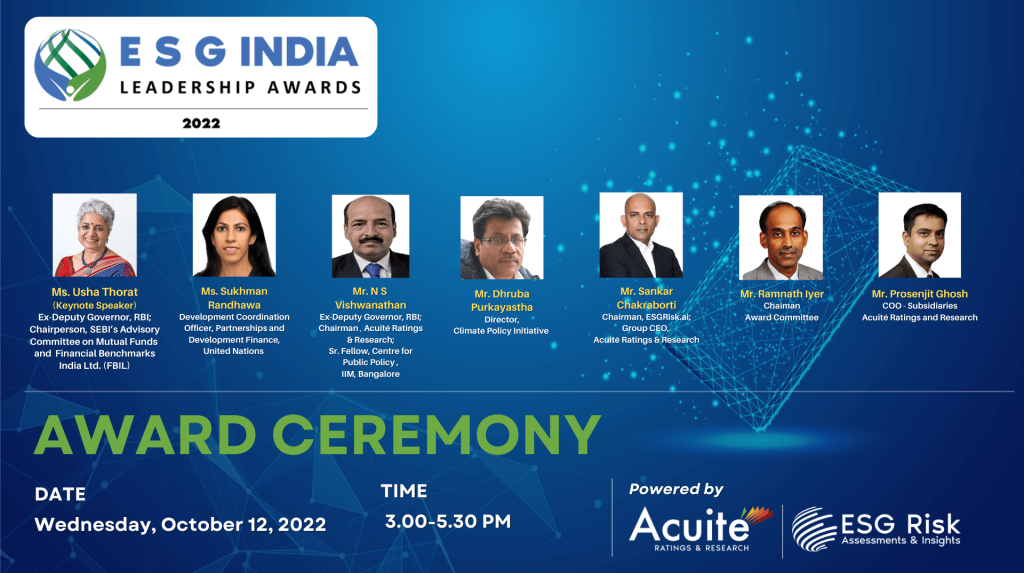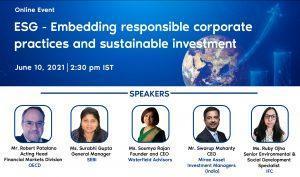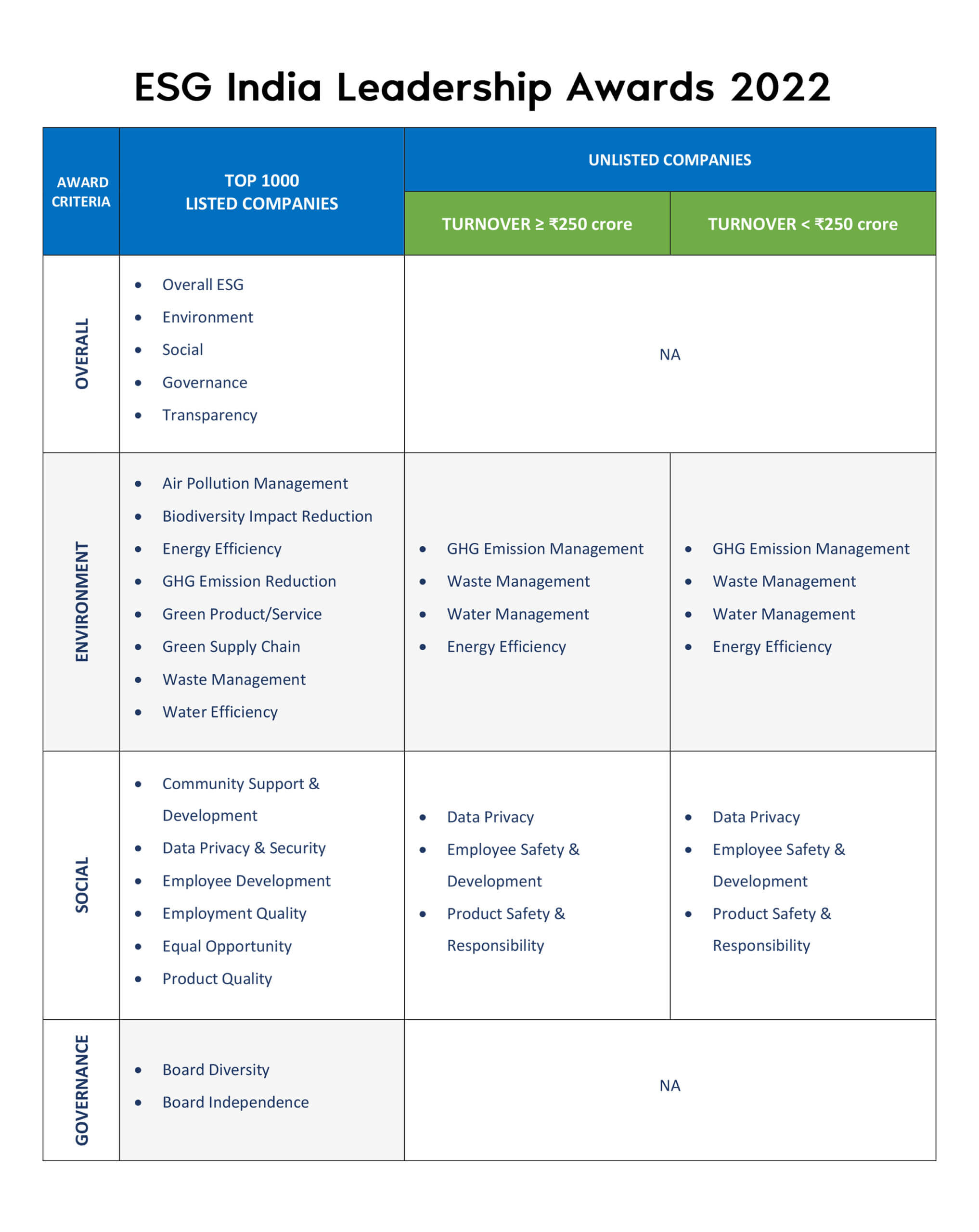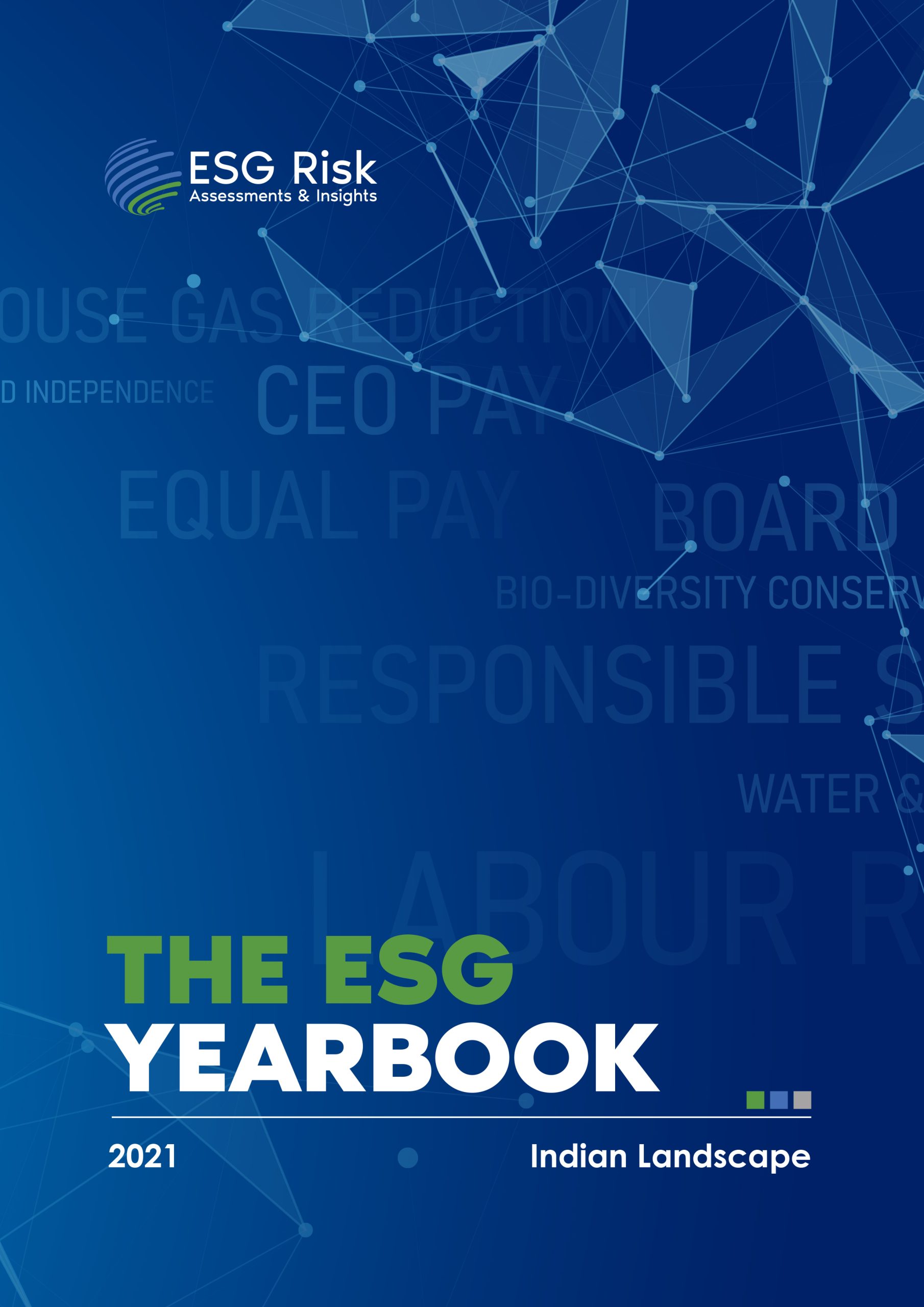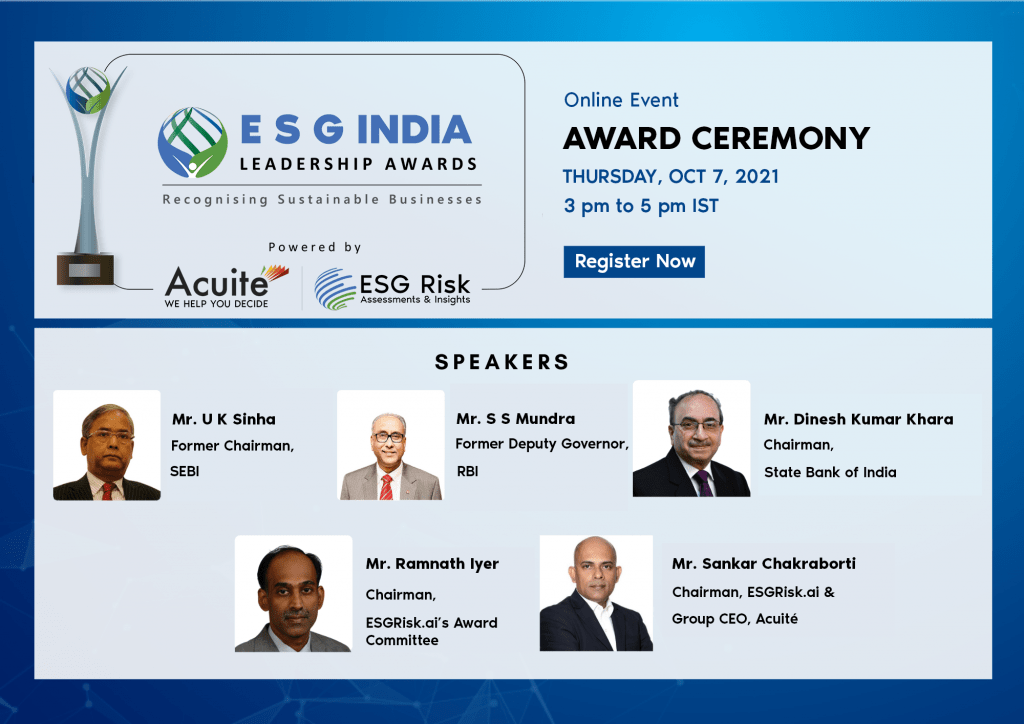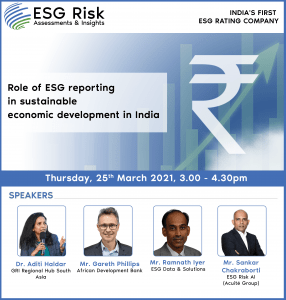Creating ESG outcomes the EV way
Sustainable practices have become the cornerstone of business success. The automobile industry, which is quickly moving towards an Electric Vehicle (EV) future and integrating more Environmental, Social, and Governance (ESG) considerations into business strategies, is witnessing this paradigm shift. The extractive sectors, component producers, vehicle assemblers, and manufacturers of components are all affected significantly by this transformation.
The issues posed by conventional Internal Combustion Engine (ICE) vehicles have been addressed by EVs to quite an extent.
For the unversed, ICEs are conventionally powered cars and trucks that run on fossil fuels like coal, natural gas, and crude oil. The toxic fumes and residues, released by this fuel burning inside ICEs have a terrible effect on the air quality and people’s health.
Why EV?
The fact that EVs don’t produce harmful exhaust pollutants like CO2, NOx, and NO2 gives them a major advantage over ICEs. Undeniably, EVs reduce Greenhouse Gas Emissions (GHG) and air pollution since they use electricity as the primary source of power rather than fossil fuels.
ESGRisk.ai, India’s first ESG rating provider reminds that the transportation sector has always been among the top segments harming the environment. “There have been over 2.35 million deaths in India due to air pollution” ESGRisk.ai elaborates in its white paper titled, Highway to a greener future.
To minimise their influence on the environment, transportation corporations are taking steps to lower their carbon footprint. Some of the measures implemented for environmental conservation include deploying electric vehicles.
Types of EVs
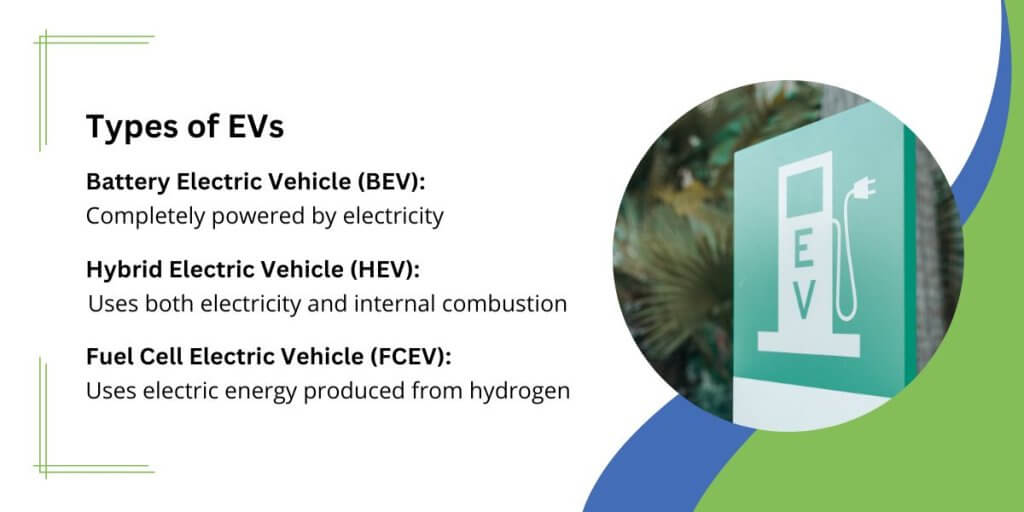
Noise, the often-ignored aspect of ICE vehicles
Research over the years has also linked stress levels to street noise by conventional vehicles. A paper published by Research Gate titled, Evaluation of Annoyance and Suitability of a Back-Up Warning Sound for Electric Vehicles notes: “Since EVs run on an electric motor, less noise is produced and emitted to the environment compared to vehicles with Internal Combustion Engines.
The Deccan Chronicle reports, “According to a survey done by Earth5R in January 2023, noise levels that are more than 50% above the allowed limit of 50 dB are primarily caused by city traffic and road noise. Because of the rapid development of technology, industry, urbanisation, and other communication and transportation systems, a concerning level of noise pollution has grown over time and needs to be controlled. To solve this problem, switching to EVs is the best course of action. Electric motors cause lesser noise pollution, especially when compared to ICE automobiles and exhaust systems.
So, are EVs completely eco-friendly?
Coal, is a critical factor in EV adoption. If coal plants are essential to run more electric points to charge EV vehicles, then it won’t have a substantial impact on climate change.
ESGRisk.ai makes another poignant observation in the white paper report: “Fundamentally, EVs have an underside to it. Various metals are used in electric car batteries, The most common metals are lithium, nickel, cobalt, manganese, etc. These metals are important for the battery’s performance and lifespan, making them ideal for battery use among other benefits. The metals that make up EV batteries are rare and mining of the same has negative effects on the environment. The mineral waste from mines pollutes the surrounding rivers and other freshwater sources and has an adverse effect on crops, animals, and humans.”
Infrastructure, an issue
Exclusions
Integration
Impact investing
Sustainable objectives
Best-in-class and positive screening
ESGRisk.ai also notes that there are challenges that India faces in implementing EVs. “The country has poor road infrastructure that makes it difficult for EVs to efficiently operate. Additionally, there is a lack of recycling infrastructure for EV batteries which will lead to a higher amount of wastage, thus posing a challenge to sustainability. There are also concerns about the performance of current EV batteries in the extreme temperatures that some parts of India face. Further, there is limited availability of spare parts for electric vehicles in India, thus making it difficult to maintain and repair them. A common barrier in the current EV market is the lack of charging infrastructure.”
How can we overcome these challenges?
ESG assessments can help evaluate the environmental, social and governance impacts of electric vehicles (EVs) across the entire supply chain, from mineral extraction to battery production to vehicle assembly, and enable stakeholders to make responsible choices that align with their values and goals. At this point, let’s understand how the ESG assessment of EV companies is done.
ESGRisk.ai, for instance, uses both qualitative and quantitative methods to evaluate the sustainability practices, social impact, and governance structures of EVcompanies’. These assessments help investors, stakeholders, and consumers make informed decisions about the companies they engage with.
Environmental criteria
ESG rating institutions analyse a company’s carbon emissions throughout the value chain, including manufacturing, transportation, and usage of EVs.
Some companies may exaggerate the environmental benefits of their EVs as an image-building exercise without transparent data to back their claims. They might use a narrow scope to outline aspects of their vehicles that seem environment-friendly while toning down the less eco-friendly aspects, which isEV greenwashing. Occasionally, greenwashing is done unintentionally owing to ignorance. ESG rating institutions have the expertise to highlight these aspects.
Social criteria
In the EV ecosystem, social factors primarily comprises safety protocols, labour laws, fair wages and responsible supply chain. ESGRisk.ai elaborates with an example: “One primary metal used in EV batteries is cobalt and 70% of its total supply comes from the Democratic Republic of Congo (DRC). The country is amongst the poorest in the world and has a prominent social issue of illegal mining also known as artisanal mining. This is wherein workers, including children, are made to dig cobalt in inhumane conditions, often being exposed to toxic pollutants, particulates and fine dust for a prolonged period.
Governance criteria
Transparency and clarity of a company’s reporting on ESG objectives and advancement are examined. The diversity of a company’s board concerning gender, ethnicity, and expertise is assessed.
Recently, a multinational automotive company, one of the largest makers of electric cars, was aghast because it received low ESG ratings. Analysts have averred that the company fell short on the other two legs of the ESG stool: social and governance. Although its green practices are laudable, the organisation doesn’t have a strong record on good labour practices and human capital. Recently, the firm’s sustainability practices faced scrutiny following claims from workers that they were victims of discrimination and coped with racial slurs at workplace.
Conclusion
The global automotive sector is witnessing massive disruptions, with EVs at the forefront of it. According to SMEV (Society of Manufacturers of Electric Vehicles) data, EV sales in India has crossed the mark of 1 million in 2023, with a 62% Electric 2 Wheelers (E2W) market share.
The Confederation of Indian Industry writes: “Several Indian automakers are entering into the production of EVs, manufacturing of Advanced Chemistry Cell (ACC) batteries, and other components related to EVs. To promote ACC batteries, the government recently announced an Rs 18,100 crore Production-Linked Incentive (PLI) scheme. The government is also accelerating the installation of electric charging facilities across the country.”
There has also been a notable 78% enhancement in budgetary allocation towards EVs from Rs. 2,908 crore in FY2022-23 to Rs. 5,172 crore in FY2023-24.
Meanwhile, alternative technology is being explored to decarbonise transportation. As ESGRisk.ai reports, “Besides EV, ethanol and hydrogen as an alternative fuel is gaining much traction and has undergone extensive research. Fundamentally, hydrogen is a better alternative compared to conventional petrol and diesel as it is a clean-burning, zero-carbon emission fuel. FCEVs (fuel cell electric vehicles) use electricity from a fuel cell, which in turn is powered by hydrogen.”
For India, the next few years are crucial to make a quantum leap in the automotive and transport industry.
